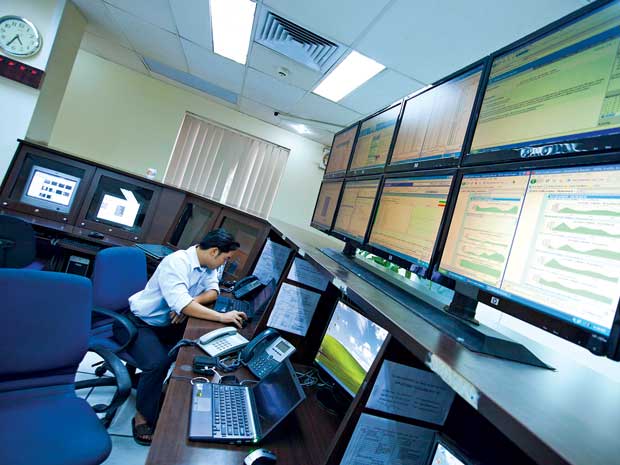
Most companies and agencies operating in specific fields such as finance and banking, taxation, oil and gas and telecommunication are using foreign software products.
Most companies and agencies operating in specific fields such as finance and banking, taxation, oil and gas and telecommunication are using foreign software products.
 |
Vietnam is considered by foreign firms as an “IT intensive market” with a scale of tens of thousands of billions of dong a year. However, the potential market is still not a delicious piece of cake for domestic solution providers.
Challenges in every aspect
Vietnam once had hundreds of software product developers in its booming period, in 2000. However, to date, it still has not had any company powerful enough to lead the market. A lot of companies have “given up the games”, others have shifted to work as the trade partners for foreign companies, or have to change their business strategies by targeting small and medium enterprises.
The few domestic salable software products include the accountancy and management software for small enterprises, agencies and hospitals. There are not many well known domestic software names, except Fast, Misa, Diginet, Lạc Việt, BKAV, FPT and Vietsoftware.
Vietnam has been lagged behind in technology. It is bad at financial capacity, while there is reasonable policy which can encourage investment. Even when domestic firms have good products, the products cannot exist because they need long term expenses, while the market is really severe when the technologies change regularly.
It is understandable why foreign companies, with powerful financial capability and experiences, can dominate the market of commercial products. However, it would be a surprise that domestic firms also fail to exploit the market of products that serve public agencies.
This is considered a fertile soil for domestic firms, because foreign software products cannot satisfy the specific requirements set by different localities or agencies. However, even in the market, where they have advantages, they cannot do anything better.
Dr Mai Liem Truc, former Deputy Minister of Post and Telematics, also said that it is really a risky investment to inject money in developing software, and that not all enterprises are capable to do that. Once joining the software market, enterprises need to see the new market tendencies and accept risks when investing in long term and in-depth programs.
Nguyen Minh Duc, a senior executive of BKAV, a Vietnamese network security firm, when talking about the company’s plan to sell Vietnamese anti-virus software abroad, said on Thoi bao Kinh te Vietnam that it is easier to sell abroad than selling in Vietnam.
“Vietnamese clients favor foreign products. Meanwhile, international clients do not pay attention about where the products come from. They just purchase the products which can satisfy their requirements,” he said.
State agencies could be a big piece of cake?
Nguyen Tu Quang, Director of BKAV, said that state agencies can approve the budget of billions of dong to buy software products, but they do not calculate the values in services, and consider software like electricity, water or Internet. The mechanism does not encourage software companies to make products for the sector.
Analysts have also said that they cannot see more favorable conditions in the market than 10 years ago, though there are more projects. The bigger market does not always mean many more opportunities.
Dr Tran Luong Son, General Director of Vietsoftware, says--if Vietnam does not change the viewpoint about investment and software application, the market of products for public agencies would not be the “home port” for domestic companies, even though it is very big with the value of tens of thousands of dong a year. Domestic companies still cannot see long term and stable potentials. It is very difficult to access projects, while it is very risky to make investment.
(Source: VIetnamnet)





